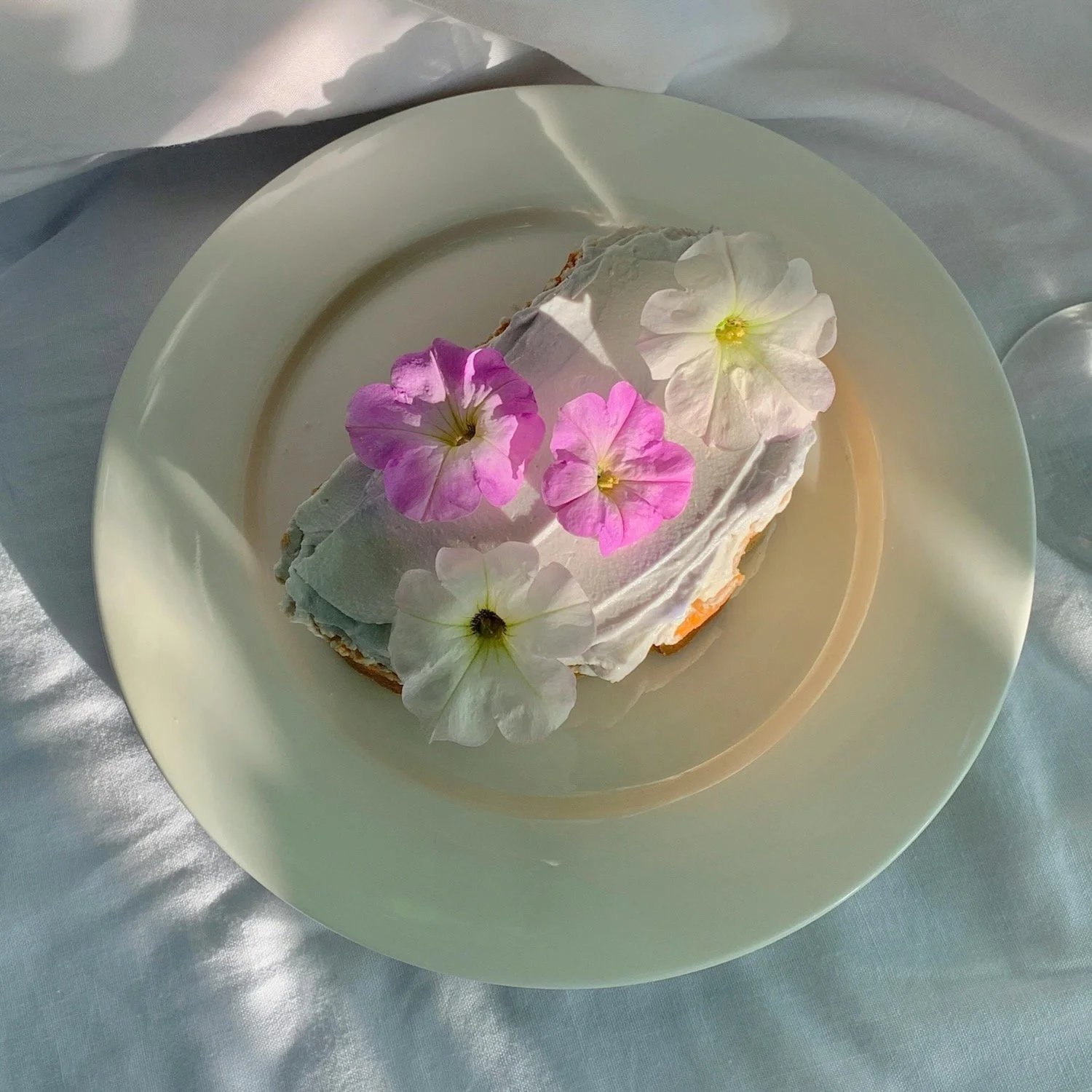The Word "Natural" Is A Scam. Here's Why.
by Marissa Pomerance
“Clean.” “Organic.” “Green.”
AKA, words marketing teams use to signal that their product is “healthy.” But there is one in particular— the mother of all these intentionally murky words— that’s designed to make us feel as though we’re making good choices, while also having zero information about what the hell it even means:
“Natural.”
It’s a word slapped on every label under the sun. Does it mean “comes from nature?” Or “occurs naturally” in the world? In which case of course we want everything we’re consuming to be natural and not some horrific science experiment gone wrong.
But what does it actually mean? Are natural foods and beauty products actually healthier? And what in the HELL is a “natural flavor?”
We’ve got answers. It gets dark.
What Is A “Natural” Food?
On the surface, the idea of a “natural” food seems easy enough to understand; meat, produce, anything coming from a real plant or animal that occurs in nature is “natural,” and any heap of chemicals mixed together to form some ungodly (but delicious) concoction like a Cheeto is “unnatural,” right?
Actually, no. Because don’t forget—even “naturally occurring” food products like meat and produce are farmed and processed, so they can be full of “unnatural” additives, like pesticides, hormones, and antibiotics.
Currently, the FDA has no rules for using the word “natural” on a label. The USDA, however, has some guidelines, defining natural as “a product containing no artificial ingredient or added color,” which “is only minimally processed.” But, according to both the FDA and USDA, meat that was produced using hormones and antibiotics is still considered “natural” and the FDA doesn’t even set guidelines for how a “natural” food should be grown, raised, or processed.
And this is a big problem, especially when companies know that “natural” implies healthy, organic, additive-free food. They know that consumers aren’t aware of these clear distinctions. Which means that they can raise all of their meat using hormones and antibiotics, and then slap a “natural” label on half of their meat, even if there’s no real difference between the “natural” products and the rest.
Here’s an example. Check out this label from Hormel Foods:
See? “100% natural.” “Raised without added hormones.” “No nitrates or nitrites added.” At least in the realm of deli ham, it sounds pretty healthy, right? Except that Hormel was sued for this label. And even though they *technically* won the lawsuit, it was revealed that there wasn’t a huge difference between their “Natural Choice” labeled meats and the hormone-infused and antibiotic-treated meat used in their other products. LIKE SPAM.
By labelling some foods as “natural” and adding a mark-up, these companies create a whole new tier of products for their brands, which attract health-conscious consumers willing to shell out more for a “healthier” version of the product. There’s a big business opportunity here; 73% of consumers seek out foods labelled “natural,” and 1 in 5 consumers are willing to pay more for “natural” products.
So a “natural” label is virtually meaningless when it comes to food. If you’re looking for the least processed, most wholesome food, we recommend sticking with labels that are “100% USDA organic,” as organic products are more highly regulated.
What The Hell Is A “Natural Flavor?”
Once you start noticing this phrase, you’ll see it everywhere. “Natural flavors.” It’s an “ingredient'“ that’s in everything from sparkling water to energy bars. Also, can we just back up and realize how insane this is? “Natural flavors” can be its own ingredient?! How? Presumably, aren’t there ingredients in these natural flavors? Shouldn’t we know what those are?
And that’s exactly the problem.
“Natural flavors” are really sketchy. Here’s the FDA’s simple, clear definition of “natural flavors”; "the term natural flavor or natural flavoring means the essential oil, oleoresin, essence or extractive, protein hydrolysate, distillate, or any product of roasting, heating or enzymolysis, which contains the flavoring constituents derived from a spice, fruit or fruit juice, vegetable or vegetable juice, edible yeast, herb, bark, bud, root, leaf or similar plant material, meat, seafood, poultry, eggs, dairy products, or fermentation products thereof, whose significant function in food is flavoring rather than nutritional.” See? So clear!
Chemically, natural flavors are similar to artificial flavors. Both are made in labs, and while artificial flavors come from petroleum and inedible substances, natural flavors are said to derive from any of those “natural” food sources listed in the FDA’s definition. However, there’s no real difference between natural and artificial flavors nutritionally or on a molecular level.
But here’s where things get especially problematic. Unless it contains a common allergen, The FDA doesn’t require food labels to disclose the ingredients that make up their “natural flavors.” So that “one” ingredient could actually be made of many. If you’re allergic to something that’s not a common allergen, like oranges, natural flavors can be particularly troublesome if you don’t know what’s in them, as you might be unknowingly ingesting harmful ingredients or allergens. And finding out what’s actually IN these natural flavors can be nearly impossible.
Even some food companies don’t know what’s in their own natural flavorings. In 2017, Spindrift CEO Bill Creelman eliminated all “natural flavors” from Sprindrift products after he couldn’t find out what was in these “natural flavors” from his own manufacturer. That’s right—his manufacturers wouldn’t tell him what ingredients were in his own product.
These “natural flavors” are common in even the most seemingly benign foods. Check out this label of a certain cult-status sparkling water:
Oh look! “Natural flavor.” Who would’ve guessed? This trendy sparkling water brand was also sued for misleading claims about its “natural flavors.” The lawsuit alleged that testing revealed that the drink actually contains a bunch of artificial ingredients, and while the brand claims that their “natural flavors” are derived from essence oils and certified 100% natural, the exact make-up of their “natural flavors” is still a bit murky.
While all of this is confusing and frustrating, it doesn’t mean you need to eliminate every single product with “natural flavors.” Unless you have a serious allergy, “natural flavors” are probably “safe” to consume (fine, we’re still bit skeptical). But just be wary. “Natural flavors” doesn’t mean a product is healthy or organic or better than anything with artificial flavors. But if you want to avoid them all together and make your own dressings and sauces and flavored sparkling water from scratch, we don’t blame you.
Please Don’t Ruin My “Natural” Beauty Products
There are plenty of “clean” beauty products that work beautifully, and we legitimately enjoy using regardless of whether they’re “clean” or not. So we’re not here to ruin your favorite products.
But, we still have to be wary of meaningless labels so we can make informed decisions that actually match our values and intentions.
And like food and flavorings, “natural” means next to nothing when it’s slapped on a beauty product. There are few regulation, rules, or guidelines for labelling a beauty product as “natural”—only 1% of the product has to be plant-based, naturally-sourced, or minerally-derived for it to qualify as “natural.” And “natural” doesn’t mean the product is organic, vegan, non-toxic, cruelty-free, or better than “unnatural” products.
But even those labels—organic, vegan, cruelty-free—aren’t well regulated either. Beauty products labeled “organic” only need a small percentage of organic ingredients. There are no requirements for a product to label itself “vegan.” And some brands claim to be cruelty-free, yet still sell their products in places where they may be required to test them on animals.
Labelling beauty products as “natural” can be misleading, and there’s an obvious effort in the beauty industry to greenwash products and market them towards health-conscious customers. For example, here’s a popular drugstore line claiming to be “natural.” I’m sure you’ll recognize it instantly:
Guess what? Yep, more false claims and empty marketing. Back in 2012, a class action lawsuit was filed against this beauty brand for false advertising. The lawsuit alleged that the brand was marketing products as “natural,” and claimed that they were actually filled with artificial and synthetic ingredients. Of course, it’s been 8 years, so it’s certainly possible that their formulas have changed. But you get the picture.
Let’s be clear— we’re not saying that all products claiming to be “natural” are lying. There are plenty of great brands that use the term “natural” accurately. But if you want to be sure, you can look for certain certifications, like these:
Natural: Look for The Soil Association’s Cosmos Natural logo, which means that a product doesn’t contain GMOs, certain chemicals, parabens, phthalates, or fragrances.
Organic: The Soil Association also has an organic logo, which means that ingredients are sustainably-sourced, organically-farmed, not tested on animals, and free of harsh chemicals. And you can check out their certified brands here.
Vegan: Look for a certification from Vegan Action.
Cruelty-Free: According to the FDA, there’s no legal definition for “cruelty-free,” so if you want to buy cruelty-free products, look for The Leaping Bunny, which means that products have been certified to follow a bunch of stringent cruelty-free standards.
Clean: Look for an EWG verification. This is one of the most common verifications for “clean” products, and it means they’re free from a range of ingredients. EWG also has a very convenient website called “Skin Deep,” which is not only a great resource for the most up-to-date information on clean products, but it has a search function that allows you to check the ingredients of virtually any product.
I know. First I came for your fragrances, and now I’ve ruined this, too. “Natural” means nothing and our clean, green, organic worlds have just imploded. But all is not lost. Now that you’re armed with this knowledge, you can make more informed decisions. You know which certifications to look for if you want to make an organic, vegan, cruelty-free, eco-friendly choice. And isn’t this knowledge also freedom? Because now that you know that “natural” is meaningless, you can stop shaming yourself for not always choosing “natural” products.
You knew it was BS. You were just being pragmatic.
Marissa Pomerance is the Managing Editor of The Candidly. She’s a Los Angeles native and lover of all things food, style, beauty, and wellness. You can find more of her articles here.











